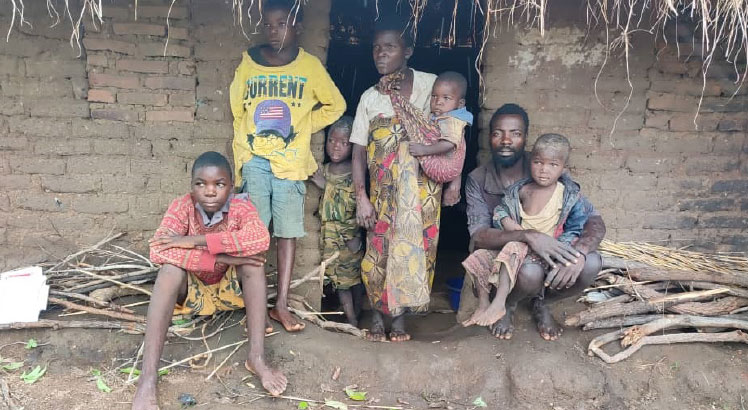Ugly face of child labour
Life has been tough for 11-year-old Major Lyton and 13-year-old Yamikani Dyless of Traditional Authority (T/A) Chitekwere in Lilongwe District.
The sons of Teresa Alick, 30, endured slavish piecework to find food, clothing and school materials.
Their stepfather too depends on piecework.
“Since our mother remarried, my four siblings and I stopped schooling as we have to do everything on our own to survive,” says Yamikani.
The pair herded livestock and worked in neighbours’ farms for low pay.

They walked barefoot for about 80 kilometres to search for piecework in T/A Chadza.
“We walked barefoot to herd cattle and goats in thick, thorny forest. We used to return home late in the evening, often eating nothing all day,” Yamikani narrates.
Last month, Lilongwe district labour officer Chiletso Mbewe withdrew the two child labourers.
She says child abandonment and lack of parental support fuel child labour in the tobacco-growing district.
“It’s sad that many families, especially the rural poor, continue to have more children than they can afford to care for adequately. This forces children into piecework for their needs,” says Mbewe.
About 2.1 million Malawians, aged five to 17 are trapped in child labour, shows the 2022 Malawi National Child Labour Survey.
This represents nearly two in every five children in this age group, a call for intensified efforts to achieve the national push to eliminate all forms of child labour.
The survey shows that child labour is higher among children from poor households, with more than a third trapped in illicit work.
The findings indicate that in every 100 of these minors, 72 work in the agriculture sector, 23 are in domestic work and three percent are in wholesale shops.
Mbewe urges parents and guardians to provide care and basic needs for young people.
Section 9 of the Childcare, Protection and Justice Act makes any parent who neglects the legal obligation to contribute towards child support liable to be prosecuted by the Child Justice Court.
The court also orders negligent parents and guardians to pay child support every month, committing them to prison if they defy the order.
Mbewe says the law allows children, parents, guardians, relatives, social welfare officers, police officers, teachers, healthcare workers and other appropriate persons to complain to the children’s court for a child maintenance order.
Lilongwe District Council has formulated by-laws to deal with all parents and guardians who allow children to work in farms, mines, factories and other hazardous places.
“The two children we have withdrawn and repatriated endured long walks just to find piecework as herd boys at that age. This would not have happened had the parents taken care of the boys,” she says.
Gikilosi Phiri, 32, says he struggles to care for his stepchildren because he has no job or business.
“I depend on piecework to feed my family,” he says. “Even our house doesn’t have a door. The situation forces the children to go out and look for piecework,” he said.
Phiri asks the government and well-wishers to help the children by providing food, clothing, bedding, business capital and other essentials.
None of the five children go to school, a situation Yamikani and Major blamed on lack of food, school bags, exercise books and pens.
Their homestead lacks a latrine, bathroom and privacy.
Phiri’s wife is pregnant, and expecting a new addition to the family.
Group village head Chinyama, in the rural setting, thanks the district labour office for liberating the young boys from the jaws of child labour.
“Their future would have been shattered had the office not intervened,” he says.
“It is pathetic that these children worked in hard conditions while their peers were in school.”
Chinyama hopes the district council’s by-laws will strengthen efforts to protect children from hard labour.
The traditional leader warns his community against exploiting children.
“Send children to school so they can become productive citizens and take part in developing their communities and our country,” he says.





